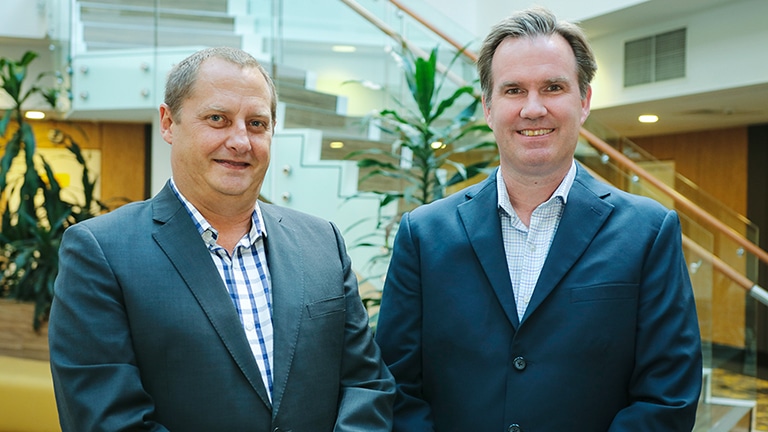
A new multimillion-dollar project will develop an artificial intelligence surveillance system to better tackle antimicrobial resistance.

A new multimillion-dollar project will develop an artificial intelligence (AI) surveillance system to better understand and tackle the cycle of antimicrobial resistance (AMR) in Australia.
As one of the greatest health challenges facing humanity, the antibiotics currently used to treat infections are becoming increasingly ineffective as bacteria continue to fight back and spread resistance.
OUTBREAK (One-health Understanding Through Bacterial REsistance to Antibiotics Knowledge) will be led by the University of Technology Sydney in collaboration with the University of Newcastle and 12 other partners.
The sophisticated system will combine machine learning, data and science to determine how AMR cycles through humans, animals and the environment.
Professor Brett Neilan and Professor Mark Flynn will head up the University of Newcastle/HMRI team, offering their expertise in the areas of environment and better healthcare respectively.
“AMR is forecast to cause 10 million deaths annually by 2050 at a cost of US$100 trillion. To fight AMR, we need better intelligence as well as new weapons,” Professor Flynn said.
“OUTBREAK will be an Australia-wide system for tracing, tracking and addressing AMR to reduce hospital admissions, healthcare costs and ultimately prevent millions of deaths.”
With bacteria all around us, it’s important to understand how antibiotic resistance develops through environmental factors such as fertilisers and foodborne diseases, as well as human-to-human transmission.
By using data streams from people, animals and the environment, combined with AMR science, the technology will predict possible AMR outbreaks, determine the origin of outbreaks, and evaluate the risks and cost-effectiveness of treatments and intervention strategies.
“We need a holistic approach to extend the effectiveness of current medicines and to develop new treatments,” Professor Neilan added.
“This project will ensure the rapid translation of university-led research into the community to improve the health of all Australians.”
The project received almost $1 million funding through a Medical Research Future Fund (MRFF) Frontiers Grant, in addition to $1.4 million in contributions from partner organisations.
The project team will conduct initial research across the Illawarra-Shoalhaven region of NSW, with a second target region of Hunter New England.
HMRI would like to acknowledge the Traditional Custodians of the land on which we work and live, the Awabakal and Worimi peoples, and pay our respects to Elders past and present. We recognise and respect their cultural heritage and beliefs and their continued connection to their land.

Hunter Medical Research Institute
We’re taking healthy further.
Locked Bag 1000
New Lambton
NSW, Australia, 2305



This site is protected by reCAPTCHA and the Google Privacy Policy and Terms of Service apply.
Copyright © 2024 Hunter Medical Research Institute | ABN: 27 081 436 919
Site by Marlin Communications
